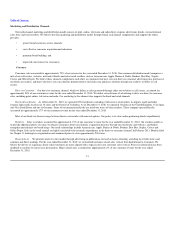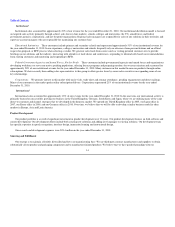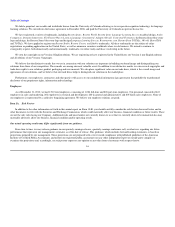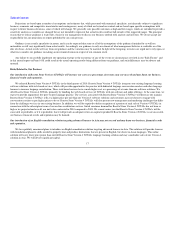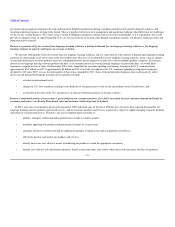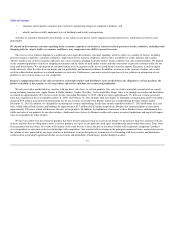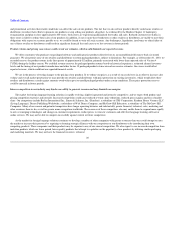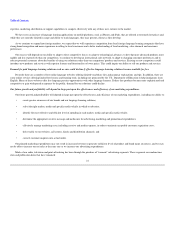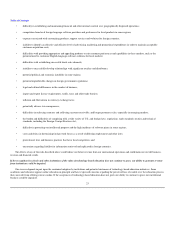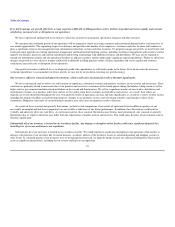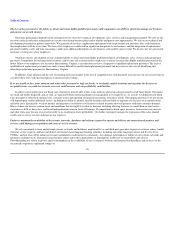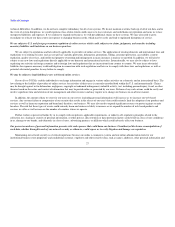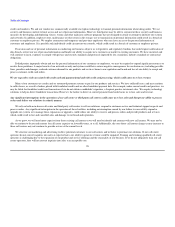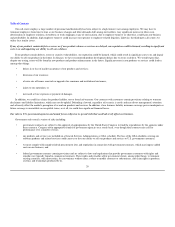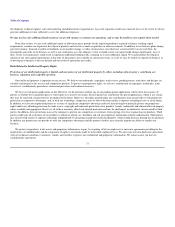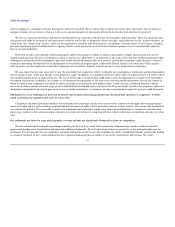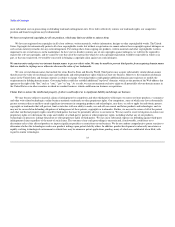Rosetta Stone 2010 Annual Report Download - page 25
Download and view the complete annual report
Please find page 25 of the 2010 Rosetta Stone annual report below. You can navigate through the pages in the report by either clicking on the pages listed below, or by using the keyword search tool below to find specific information within the annual report.
Table of Contents
difficulty in establishing and maintaining financial and other internal controls over geographically dispersed operations;
competition from local foreign language software providers and preferences for local products in some regions;
expenses associated with customizing products, support services and websites for foreign countries;
inability to identify an effective and efficient level of advertising, marketing and promotional expenditures in order to maintain acceptable
customer acquisition costs;
difficulties with providing appropriate and appealing products to suit consumer preferences and capabilities in these markets, such as the
potential need to customize English language software solutions for local markets;
difficulties with establishing successful kiosk sales channels;
inability to successfully develop relationships with significant retailers and distributors;
potential political and economic instability in some regions;
potential unpredictable changes in foreign government regulations;
legal and cultural differences in the conduct of business;
import and export license requirements, tariffs, taxes and other trade barriers;
inflation and fluctuations in currency exchange rates;
potentially adverse tax consequences;
difficulties in enforcing contracts and collecting accounts receivable, and longer payment cycles, especially in emerging markets;
the burden and difficulties of complying with a wide variety of U.S. and foreign laws, regulations, trade standards, treaties and technical
standards, including the Foreign Corrupt Practices Act;
difficulty in protecting our intellectual property and the high incidence of software piracy in some regions;
costs and delays in downsizing foreign work forces as a result of differing employment and other laws;
protectionist laws and business practices that favor local competitors; and
uncertainty regarding liability for information retrieved and replicated in foreign countries.
The effects of any of the risks described above could reduce our future revenue from our international operations and could harm our overall business,
revenue and financial results.
If the recognition by schools and other institutions of the value of technology-based education does not continue to grow, our ability to generate revenue
from institutions could be impaired.
Our success depends in part upon the continued adoption by institutions and potential customers of technology-based education initiatives. Some
academics and educators oppose online education in principle and have expressed concerns regarding the perceived loss of control over the education process
that can result from offering courses online. If the acceptance of technology-based education does not grow our ability to continue to grow our institutional
business could be impaired.
23
•
•
•
•
•
•
•
•
•
•
•
•
•
•
•
•
•
•
•


